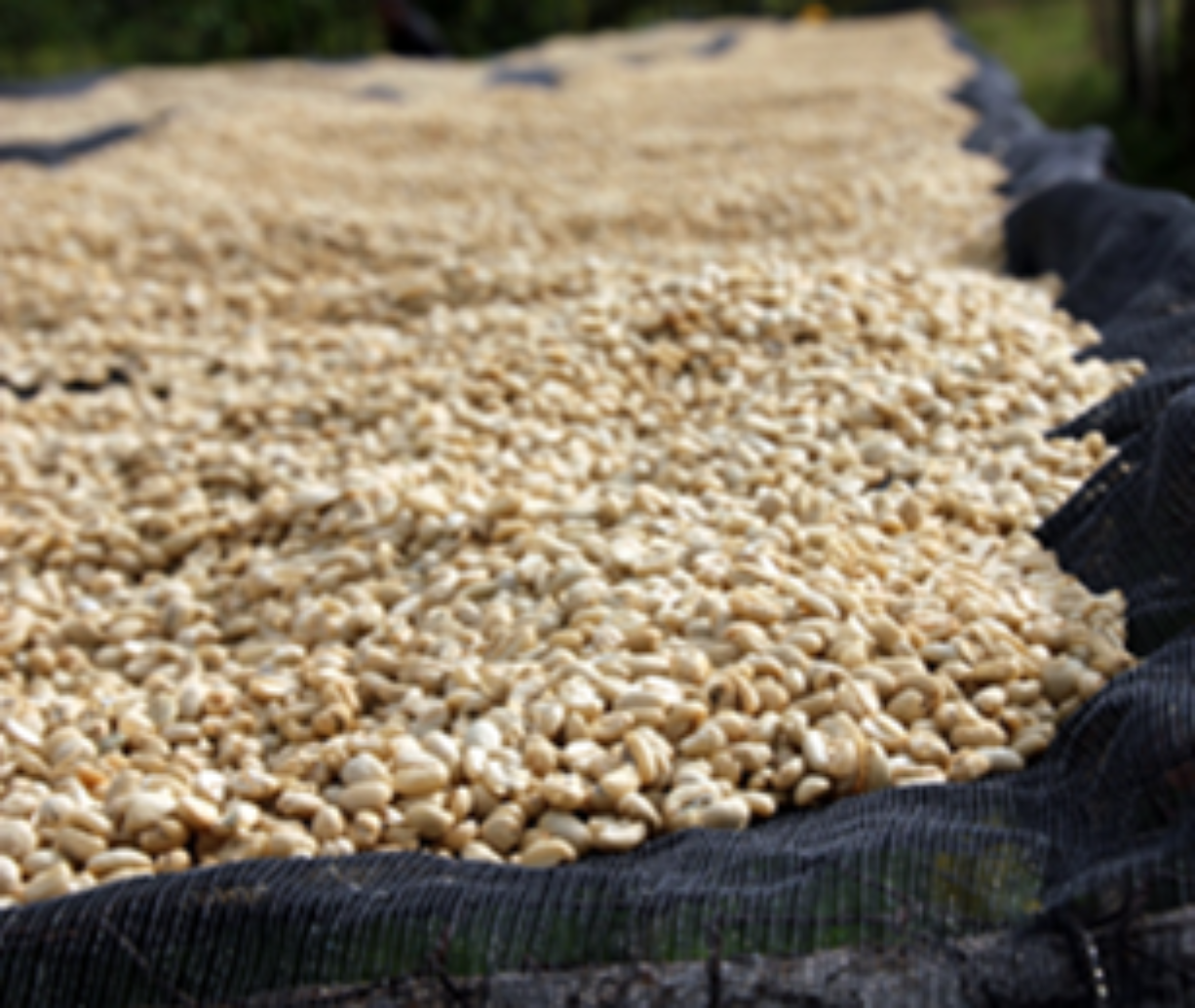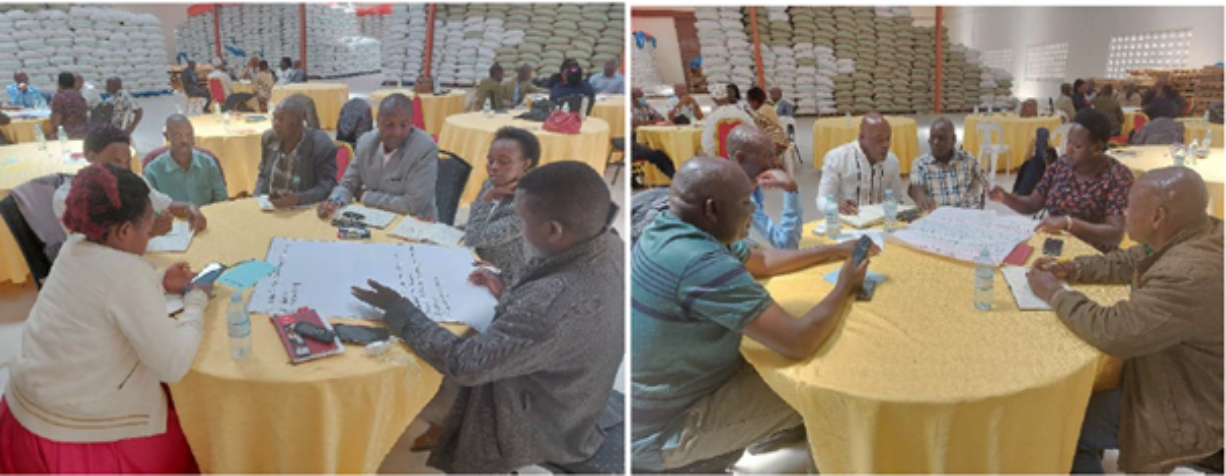
Since 2021 and together with Naturland – Verband für ökologischen Landbau e.V., we have been working with ACPCU in Uganda. ACPCU stands for Ankole Coffee Producers Cooperative Union. As an umbrella organisation now comprising more than 32 cooperatives and 15,000 farmers, they are successful in marketing Arabica and Robusta coffee beans certified ecologically and socially. In addition to exports, ACPCU provides its members with a variety of economic, agroecological and social services. Here in Germany, you can find ACPCU Fairtrade coffee in any well-stocked organic supermarket.
It actually all sounds pretty good and the positive numbers also prove entrepreneurial success. Nevertheless, in work done by AHA trainer Purvi Shah-Paulini, it has become apparent that even ACPCU is anxious about the future. The coffee market in Uganda is highly competitive and many companies and traders are trying to get a foot in the door.
The methods used are usually very straightforward. Mobile traders travel from farm to farm on motorcycles and buy coffee directly from the producers. However, many of these farmers who sell locally on the street are actually members of an ACPCU cooperative. The coffee therefore no longer reaches the cooperative and ACPCU ultimately misses out on the total volume.
This becomes conspicuous when farmers are no longer supplying any coffee and no longer come to the mandatory annual meetings. If both these circumstances occur in a period of two years, a member becomes listed as “inactive” or “dormant.”
What to do?
ACPCU and the AHA have teamed up and delved into the problem. What drives people to spontaneously sell to external traders? What do the traders offer that ACPCU does not? And much more… Using a set of questions drawn up jointly, we conducted a survey of 200 of the 1,089 inactive members in late summer 2022. Respondents were randomly selected to obtain a meaningful, realistic result. The evaluation shows:
- ACPCU services for and with women appear to be having an impact. There are few inactive female farmers
- Most inactive members are male (69%) and have a medium-sized business
- Price seems to be the most important factor, regardless of when payment is actually made
- The majority of inactive farmers sold coffee to traders who were in close proximity or to passers-by.

The evaluation was then reviewed in a joint workshop with managers from the cooperatives affected by inactive members. This was followed by a training session on membership recruitment by our Ugandan trainers Thomas Mayega and Joseph Wandera. There, possible solutions were sought to the prepared analyses.
The following measures were drawn up:
| Cooperatives must be able to pay farmers at any time, directly and at a good price. To do so, in an emergency they can borrow money from ACPCU.
ACPCU plans to establish a fund to provide money to support cooperatives during such times. |
Young farmers who are new to the business or who are taking over their parents’ fields especially need to be brought on board. They need to understand the added value of cooperatives and how they can be actively involved in developing their region through membership. |
| Cooperative managers will put more energy into coordinating their knowledge and resources because the community generates creativity and space for solutions. | Before a member becomes inactive, there are signs such as increasing supply bottlenecks. Managers should check members for these signs. After identification, so-called “agents” are sent to the relevant members to identify the reasons and ways to support them. |
| ACPCU staff and employees are trained in greater detail to maintain close and collaborative interactions with farmers. | Often, cooperatives focus their social work mainly on the smallest farms. However, inactive membership is often a phenomenon associated rather with medium and larger businesses. ACPCU must keep an eye out for everyone and not pass anyone over, even if he or she is in a better financial position. |
In implementing these newly set and refreshed goals, we – AHA and ACPCU – want to start the new year together. We are very much looking forward to the coming months and are proud of what has been achieved so far.
Facts and figures on inactive members
Despite increased efforts to certify members, ACPCU is making available only 24% of the estimated annual production volume. About 7.1% of ACPCU members are inactive (1,089 out of 15,334). Given 1,089 inactive members and an average production of 772 kg per farmer, this means an average of 840,708 kg is going lost every year. This is equivalent to a delivery to the largest ACPCU cooperative.
This could be of interest to you:
-
Entrepreneurship, Leadership and Management -
Organisational Development, International Cooperation KENAFF: Sustainable services for Kenya’s smallholder farmers
Read -
International Cooperation, Developing Rural Areas One year of agricultural policy dialogue between Germany and the African Union
Read
